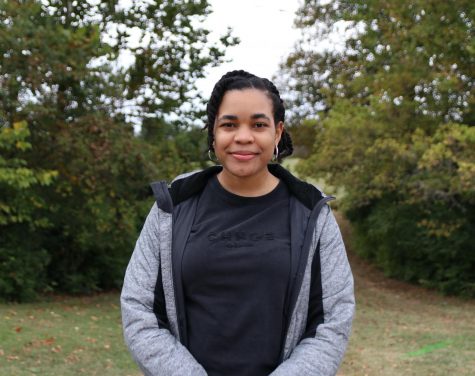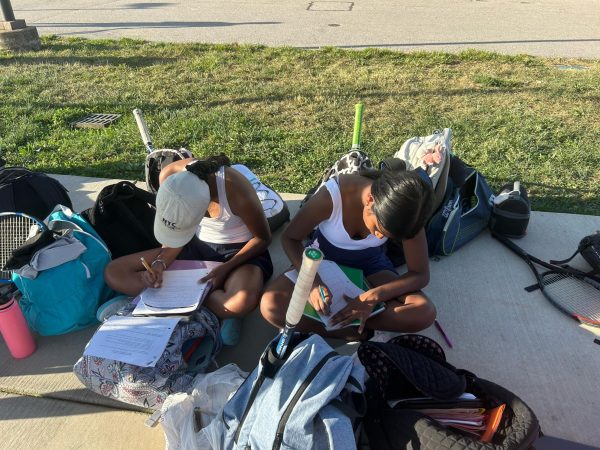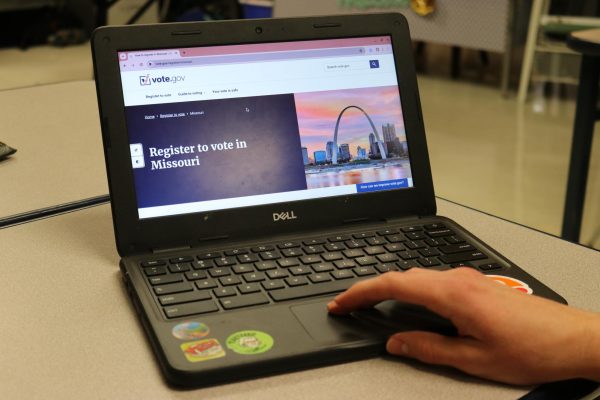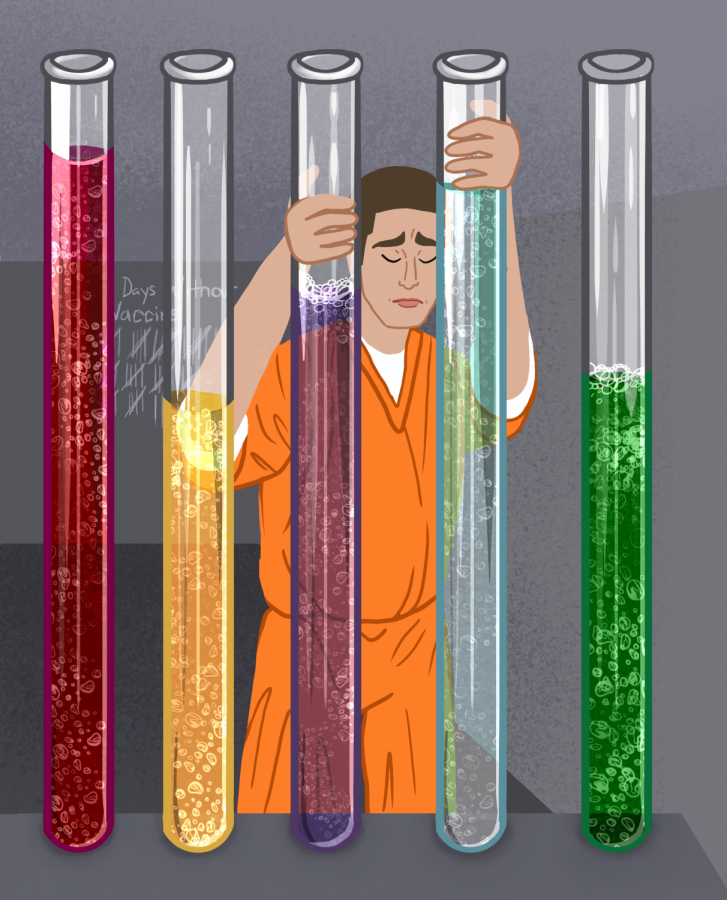The Case to Prioritize Inmates for Vaccine
Media by Emmie Foley
Overcrowding and mass incarceration in prisons and jails was a grave issue prior to the COVID-19 pandemic, but now these failures of the criminal justice system can become an unnecessary death sentence. The COVID-19 vaccine is theoretically within arms reach of the incarcerated and detained, so they should not have to lie in wait for impending infection. Inmates’ lives matter, and the correctional facilities they reside in should not be barriers to receiving adequate protection.
Crowded and confined, incarcerated people endure some of the worst living conditions, and their risk of disease is exacerbated by the COVID-19 pandemic.
Prisons are the new petri dishes: a majority of the largest, single-site outbreaks since the beginning of the pandemic have been in prisons and jails, according to data compiled by the New York Times.
Nationwide, at least 394,256 incarcerated individuals tested positive for COVID-19, and more than 2,408 died in prisons due to COVID-19, according to the COVID Prison Project as of March 14. In Missouri, one in five inmates, or at least 5,739, have had COVID-19 and 45 have died, along with six staff, as the rate of infection in prisons is 2.7 times that in Missouri overall.
The incarcerated and detained must be prioritized in COVID-19 vaccine distribution. As recommended by the CDC, Missouri should designate incarcerated people for vaccination at the same time as correctional officers, in Phase 1B, Tier 1, rather than in the last target—Phase 3.
ENVIRONMENT
The risk of getting COVID-19 in prison is 5.5 times higher than for the general population, according to research in the Journals of the American Medical Association. Overall, COVID-19 mortality rates among prisoners are higher than in the general population.
Inmates in correctional facilities have dormitory-style cells that should have at least a 25-foot space per person, making it nearly impossible to socially distance, as stated in the Prison Policy Initiative reports. These are similarly sized, if not smaller than nursing homes’ bedrooms.
Outbreaks in correctional and detention facilities are often difficult to control given the inability to physically distance, limited space for isolation or quarantine and limited testing and personal protective equipment resources, according to the CDC.
Additional factors that increase risk of infection include prison overcrowding, high population turnover, high concentration of infectious diseases in corrections as well as poor ventilation, lower hygiene standards, shared facilities and inconsistent mask enforcement.
HEALTH AND AGE
About 40 percent of those in prisons and jails have a chronic medical condition, such as hypertension, asthma and diabetes, making them more likely to experience COVID-19 complications and death, according to The Sentencing Project. This is particularly stark for Black Americans, who make up 40 percent of the incarcerated population yet only 13 percent of U.S residents and who are disproportionately affected by COVID-19.
In Missouri, about 11 percent of the state prison incarcerated population is 55 years of age or older, according to data compiled by the Prison Policy Initiative from the National Corrections Reporting Program. All older adults are at a greater risk for complications from COVID-19, and Missouri Department of Corrections officials stated the majority of COVID-19 related deaths in the incarcerated population were 60 years of age.
More than 470,000, or about 63 percent, of people detained in jails are unconvicted, and one in five people are incarcerated for nonviolent drug offenses, which disproportionately affects Black, Latino and low-income communities, according to a 2020 Prison Policy Initiative report.
INMATES’ LIVES MATTER
Crossing the gates into a jail or prison should not strip incarcerated people of their humanity, nor should brightly colored jumpsuits define one’s “worthiness” of safety, awareness and protection in comparison to the general public, or a healthy teenager.
While prisoners are making amends for their actions, the threat of COVID-19-related death is an unnecessary, cruel death sentence, that contradicts the ethics of the criminal justice system. Inmates’ lives are not disposable.
Missouri must protect the human rights of all, reworking this inhumane hierarchy of distribution to efficiently vaccinate the entire incarcerated population. Preventing greater loss of life to the most vulnerable is a public health necessity.
Your donation will support the student journalists of Marquette High School. Your contribution will allow us to purchase equipment and cover our annual website hosting costs. You may become a PATRON by making a donation at one of these levels: White/$30, Green/$50, Blue/$100. Patron names will be published in the print newsmagazine, on the website and once per quarter on our social media accounts.

Lauren Pickett, senior, is the In-Depth Editor for the MHS Messenger. This is her second full year on staff. Also, Lauren participates in two other activities:...







